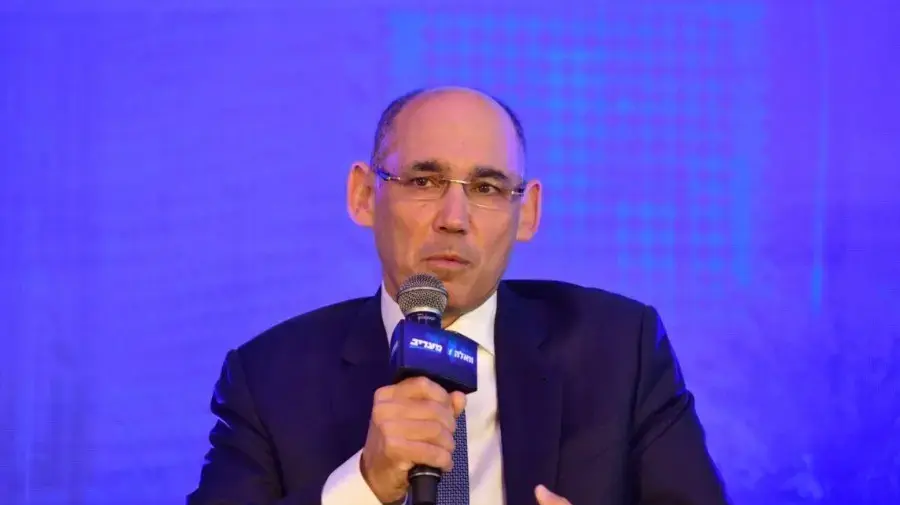The Bank of Israel further states: This is a contribution of 10% of GDP • Chambers of Commerce: to enable business activity without a public • In the first closure, the volume of credit transactions decreased by 30%
Dizengoff Center during the closure in September
Photography:
Gideon Markovich
The opening of all businesses that do not receive an audience will result in savings of close to NIS 3 billion a week and will have the potential for a contribution of about 10% of GDP - the Bank of Israel states in its analysis of the economic impact of the closure.
The Bank's Research Division conducted the analysis based on government decisions published in relation to the closed industries for which it conducted the simulation.
The businesses in the analysis include activities in the communications industries (without high-tech), industry, professional services (such as lawyers and accountants), computer support and management services and repair.
The analysis was also performed for small businesses that employ up to ten workers, who are not allowed to work in the current closure.
According to estimates, these businesses constitute up to 4.5% of the total economic product - about NIS 1.2 billion per week in terms of 2019 product, and most of them (3%) come from the professional services industry.
The weight in the economic employment of the businesses whose activity has been reduced in the transition to the current closure, and whose activity does not involve receiving an audience, stands at about 10%, which is about 400,000 employees.
In the segmentation of small businesses, which are now partially active, their share of employment is 4.9% - that is, about 195,000 employed persons.
Iron less on credit
Prof. Michel Strawczynski, Head of the Bank of Israel's Research Division, commented on the analysis of the quarantine staff to emphasize the importance of returning businesses without receiving an audience to activity due to their contribution to the economy, along with the low morbidity risk of operating them.
Yesterday, the Bank also published various indicators for examining economic activity in the economy during the corona crisis during the first closure period - March-April, compared with the period between the beginning of the year and the appearance of the corona.
When using credit cards, it is possible to notice an average decrease of about 30% in the total activity of debit cards during the closure period.
This is a decrease in the volume of transactions from about NIS 1.1 billion per day before the restrictions to NIS 786 million on average during the closure period.
This is a total decrease of about NIS 10.4 billion in the volume of transactions during the closure period.
Increase in public mobility
In April, purchases at the daily level of debit cards in the electrical appliances, clothing and furniture industries decreased by about 50% compared to the beginning of the year;
In the fuel and transportation industry, there was a decrease of about 60% and in the leisure, education, restaurants and tourism industries, there was a decrease of more than 70% in purchases with credit cards, compared to the beginning of the year.
In contrast, since the first announcement of the restrictions on March 16, there has been a 25% increase in debit card purchases at food chains.
As a result of the easing, there was a recovery in activity in some industries, and in mid-May credit card spending was only about 12% lower than at the beginning of the year - compared with April 17, when credit card spending was 42% lower than at the beginning of the year.
"When looking at expenditures by industry, it can be seen that in the electrical products, clothing and furniture industries the expenditure amounts returned to pre-crisis levels," the Bank of Israel explains. "The increase in spending on fuel and transportation illustrates the increase in public mobility. There is also a positive trend in spending on "Restaurants, education and leisure. On the other hand, spending in the various areas of tourism has not yet recovered."
"Reduce restrictions"
Meanwhile, the president of the Association of Chambers of Commerce, Adv. Uriel Lin, yesterday addressed Prime Minister Benjamin Netanyahu with a proposal to immediately reduce the closure as early as next week, with the end of the holidays. He said information coming from the field shows that the damage to the trade sector is fatal and destructive. Principles: Elimination of the limit on the number of employees in the services defined in the regulations as essential services, complete abolition of the prohibition to operate businesses that do not receive an audience, and within five days of the holiday allow business activity in businesses that receive an audience, subject to compliance with the purple mark and employer commitment.
According to Lynn, "The business sector is in a state of emergency. Continued closure will collapse the economy. The number of job seekers is growing. It is possible to continue to lead a business life, alongside the corona, with the necessary restrictions and caution."
According to the current legal situation, employees should not be allowed to enter the workplace, but according to a list of exceptions, one of which is what is defined in the regulations as an essential service.
Lynn said the desire to prevent gatherings is understandable and clear.
What is not clear is why it is forbidden to come to work in workplaces that do not accept an audience.
Thus, for example, not all high-tech companies in Israel meet the criteria of the Capital Investment Encouragement Law and enter the exception.
Why prevent them and any business that does not receive an audience, from working?
According to him, this is a serious national damage that has no benefit on its side.









